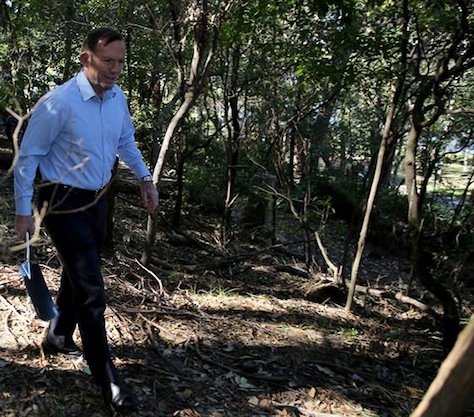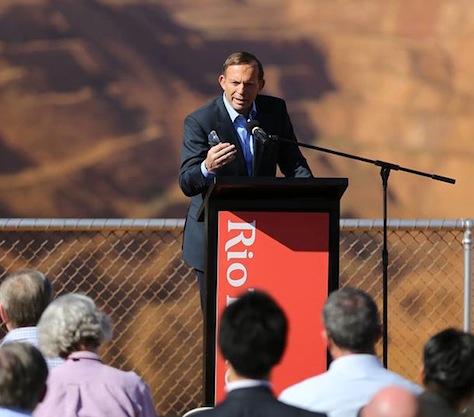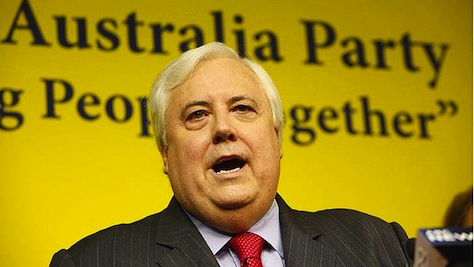If the carbon trading scheme was the signature accomplishment of six years of Labor government, perhaps its second-most important policy achievement was the promulgation of a mining profits tax that came into effect in 2012.![]()
But a month after Australian prime minister Tony Abbott successfully scrapped the carbon scheme, he’s now also managed to repeal the mining tax as well, which levied a 30% tax on mining profits. Ironically, the tax failed to raise anything close to the projections that the Australian Labor Party hoped, due in part a slowdown in demand for Australian commodities as China’s economy decelerates. Eliminating the tax was one of the chief campaign pledges that Abbott made in his campaign to defeat Labor last September.
Nevertheless, with the decision by Australia’s Senate to scrap the tax by a margin of 36 to 33, Abbott will easily pass the repeal through Australia’s lower house, the House of Representatives, where Abbott’s Liberal Party / National Party coalition holds a more solid majority.
As with the carbon scheme, Abbott secured the legislative victory with the support of Clive Palmer, a former mining magnate, and his new Palmer United Party, an alternative to the center-left Labor and to the center-right Coalition. Palmer holds the party’s sole seat in the House of Representatives, but the PUP holds three seats in the Senate, making it a key power broker in enacting Abbott’s policy agenda. Palmer himself is an often beguiling mix of ideologies, but he seems more at home on the right than on the left.
Palmer, who made millions as the owner of several coal and nickel interests, agreed to the repeal after securing the government’s support for several family-based initiatives. He also received a promise to freeze government contributions to Australia’s superannuation plan for nine years, forcing Abbott to rescind a campaign pledge, thereby halting a planned rise from 9% to 12% — employer contributions are now capped at 9.5%.
* * * * *
RELATED: How Tony Abbott killed Australia’s carbon scheme
* * * * *
Under a policy introduced by former prime minister Paul Keating in the 1990s, agreed with business and labor unions, employers are required to make annual contributions to each employee’s ‘superannuation’ fund. The contribution level began at 3%, rose to 9.5% and was set to climb to 12% before the Abbott government’s latest decision, which would freeze contributions at 9.5% through 2025. That, in turn, has caused Keating and other Labor leaders to denounce the mining tax deal, arguing that it could derail the full potential of the superannuation program, which itself was designed to meet the rise of retirement-age Australians set to expand in the current decade and beyond.
Nevertheless, the deal leaves Labor in somewhat of a quandary under the leadership of former education minister Bill Shorten.
Australian voters aren’t exactly keen on Abbott’s government, which hasn’t had an incredibly easy first year in office — it’s been captive to small parties like Palmer’s in the Australian Senate and Abbott was also forced to shelve his plan to expand paid parental leave, one of his top campaign pledges last summer.
But it makes the drama of the last Labor government even more pointless. It now seems less relevant than ever if Kevin Rudd or Julia Gillard was prime minister in 2010, because Abbott has, in about one month’s time, dismantled Labor’s two policy cornerstones. To have spent his first months as opposition leader railing impotently on the sidelines doesn’t make Shorten look like a prime minister in waiting, even as Abbott’s government suffers from its decisions on superannuation and paid parental leave.


